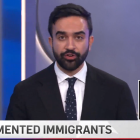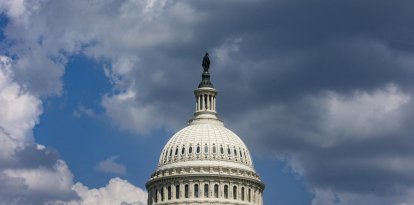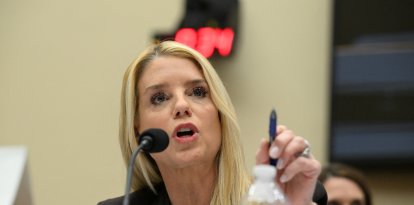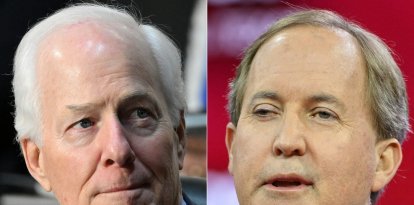Analysis
Cuomo vs. Mamdani: NYC Democrats choose between an extreme Marxist and an ex-governor accused of sexual abuse
One seeks to make his political comeback, and the other to become New York City's first Muslim mayor.

Cuomo and Mamdani/ Vincent Alban, Yuki Iwamura.
Andrew Cuomo and Zohran Mamdani face off this Tuesday to define who will be the Democratic candidate for the New York City mayoral election. Although this primary seemed to be defined before it began, in a few weeks it became a plebiscite between the new and the old, between the moderate and the progressive. Particularly, it seemed to be a mirror of the situation of the Democratic Party at the national level. A division that, in this case, is manifested in the choice between a Muslim socialist and a former governor accused of abusing women.
With the incumbent Eric Adams running as an independent and the Republican Party once again aligned behind Curtis Sliwa, it only remains to define the Democratic face that will compete on November 4.
Whoever the winner is, he or she will face a number of challenges, such as the cost of living, housing shortages, public safety, and, above all, a great dissatisfaction with the direction of the Big Apple. Indeed, a recent Marist poll found that 77% of neighbors believe the city is not on the right track. The dispute also has a national scope. Beyond the Democrats' ideological conflict, what is certain is that three of the last four NYC mayors tried to make it to the White House.
"How How on earth...?"
This is how journalist Jonathan Martin of Politico began his analysis of this election: "How on earth are voters in America’s largest city choosing between a 33-year-old socialist and a sex pest for mayor?"
Martin did not show much enthusiasm in introducing the candidates. On one side is Cuomo, who is seeking a triumphant return to state (and national) politics after walking out the back door of the New York governorship. Between 2020 and 2022, he very quickly went from being a national hero celebrated by the media to being the state's third governor to resign.
While he presents himself as a traditional, common-sense choice to tackle the city's problems, two major scandals dog him: sexual abuse allegations and the handling of nursing homes during the pandemic.
According to Joe Biden's Justice Department, Cuomo and his staff were part of "a pattern or practice of discrimination against female employees based on sex." Indeed, they cited 13 women harassed over an eight-year period.
"The conduct in the Executive Chamber under the former governor, the state’s most powerful elected official, was especially egregious because of the stark power differential involved and the victims’ lack of avenues to report and redress harassment," Kristen Clarke, assistant attorney general for the agency's civil rights division, said in 2024.
As for the nursing home case, it took place during the first wave of Covid-19 cases. With Cuomo as governor, the New York State Department of Health (NYSDOH) issued a directive prohibiting nursing homes from turning away COVID-19 patients discharged from hospitals.
While the initial intent was to free up hospital beds, it ended up exposing vulnerable populations (older adults) to the virus. In early 2021, Attorney General Letitia James revealed that the Cuomo administration had reported far fewer nursing home deaths than actually occurred. According to her report, they were underreported by as much as 50%.
With all this on his back, Cuomo is appealing to a traditional, centrist campaign to return to the political scene. With an agenda based on public safety and efficiency, he has the support of much of the party establishment, including Bill Clinton, James Clyburn, Tom Suozzi, and Michael Bloomberg.
Mamdani and the Socialist Hope in NYC
On the other side is Zohran Mamdani, a Muslim assemblyman from Queens virtually unknown a few months ago. A self-described "socialist Democrat," he drew attention for the relaxed style of his campaign, leveraged by a diverse coalition of young voters.
This is a candidate who, in late 2020, was posting the following about the NYPD: "There is no negotiating with an institution this wicked & corrupt. Defund it. Dismantle it. End the cycle of violence."
Even the editorial board of The New York Times called to avoid voting for Mamdani. "We do not believe Mr. Mamdani deserves a place on New Yorkers' ballots. His experience is lacking, and his agenda reads like a fast-tracked version of Mr. de Blasio's daunting mayoralty," they wrote in mid-June.
Virtually from anonymity, the 33-year-old was catching up to Cuomo in the polls, eventually surpassing him in the latest one conducted by Emerson College.
"Over five months, Mamdani’s support has surged from 1% to 32%, while Cuomo finishes near where he began," explained Spencer Kimball, executive director of Emerson College Polling.
How did he reach these numbers? His dynamic, socialist-leaning campaign found a very sensitive issue in affordability.
">Every politician says New York is the greatest city in the world. But what good is that if no one can afford to live here?
— Zohran Kwame Mamdani (@ZohranKMamdani) October 23, 2024
I'm running for Mayor to lower the cost of living for working class New Yorkers.
Join the fight. https://t.co/ooNzX0rccz pic.twitter.com/xqKTHNNWRO
"Mamdani understood that he was never going to own the crime issue. He was for defunding, but he could own affordability, and that’s where he planted his flag early. And as crime has come down, the issue of affordability has risen, and it turns out it was the smart play," Bloomberg adviser Howard Wolfson told Politico.
His exotic, socialist-leaning proposals fired up the party's young rank-and-file across the city. Among other things, he proposed the following:
- Create a network of state-run supermarkets.
- Tax of 2 % on income for millionaires.
- Create an alternative public safety force to the NYPD.
- Apportion $65 million for transgender health care, including for minors.
- Transform 50 schools into climate resilience hubs.
- Free childcare and buses for all.
- Freeze rent prices.
- Raise the corporate tax from 7.25% to 11.5%.
- A minimum wage of $30 an hour by 2030.
At the same time, Mandani has been highly critical of Israel, which could well repel the Jewish vote in the Big Apple. For example, he called Israel's actions in the Gaza Strip "genocide" and refused to condemn the expression "Globalize the Intifada," arguing that it is an "expression of Palestinian rights." In May of this year, he refused to sign a resolution commemorating the Holocaust.
If elected, he would be the first Muslim mayor of New York City.
How does the voting system work in NYC?
Ranked-choice voting is prevalent in New York City. Instead of voting for only one candidate, this method allows citizens to rank up to five candidates in order of preference, from one to five. However, it is not mandatory to mark the first five choices.
In the first round of voting, only the first options chosen by voters are counted. At the end of the count, the candidate with the fewest votes is eliminated, and then the second preference of those who chose him or her is taken into account. Their votes are then distributed among the remaining candidates.
This process will be repeated over and over again until someone surpasses 50% of the votes and is declared the winner. In 2021, Adams won in the eighth round of voting.
For example, should Scott Stringer be the first eliminated from the race, his votes will go to whomever his voters marked as their second choice. If Stringer received 10,000 votes and 8,000 of them put Cuomo as second choice and 2,000 put Mamdani as second choice, those votes will go to them on the second round of voting.





























